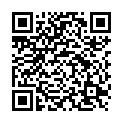|
|
|
| Module code: MBG21-10 |
|
|
3V+2U (5 hours per week, accumulated) |
|
7 |
| Semester: 3 |
| Duration: 2 semester |
| Mandatory course: yes |
Language of instruction:
German |
Assessment:
Project work
[updated 30.10.2023]
|
MBG21-10 (P311-0189) Management and Professional Pedagogy in Health Care, Bachelor, ASPO 01.10.2021
, semester 3, mandatory course
|
75 class hours (= 56.25 clock hours) over a 15-week period.
The total student study time is 210 hours (equivalent to 7 ECTS credits).
There are therefore 153.75 hours available for class preparation and follow-up work and exam preparation.
|
Recommended prerequisites (modules):
MBG21-1 Academic Methodologies and Study Skills I
MBG21-2 Digital Expertise
MBG21-6 Scientific Work II
[updated 27.03.2025]
|
Recommended as prerequisite for:
MBG21-15 Evidence-Based Medical Care and Nursing
MBG21-16 Study Project
MBG21-19 Academic Methodologies and Study Skills III
MBG21.S.32 Reviews and Guidelines
MBG21.S.33 Evaluation
[updated 27.03.2025]
|
Module coordinator:
Studienleitung |
Lecturer:
Studienleitung
[updated 27.03.2025]
|
Learning outcomes:
Quantitative methods
After successfully completing this module, students will:
Students will be able to:
be able to describe the logic of the quantitative research process.
be able to explain the difference between experimental studies and observational studies.
be able to name the advantages and disadvantages of different selection and survey methods in quantitative research.
be able to explain the basic principles of generating hypotheses and operationalization.
be able to explain the significance of the p-value.
be able to recognize quantitative methods in publications.
be able to critically evaluate quantitative methods presented in scientific publications
be able to derive correct interpretations based on the results of quantitative research
be able to apply their methodological knowledge of quantitative research to specific research questions
be able to apply the methods of inductive statistics to simple exercise examples and select the appropriate statistical test.
be able to reflect on the strengths and weaknesses of implemented projects and incorporate them into the planning of future projects
be able to critically reflect on aspects of research ethics in the context of the quantitative research process
Students will develop the willingness to scientifically address application-oriented research questions and take research results into account in future professional activities.
Quantitative tutorial
After successfully completing this module, students will:
Students will be able to:
be able to derive a quantitative research problem
be able to use a statistical software program based on a specific problem and sample data sets
be able to apply quantitative research methods and analytical techniques
be able to present and explain research findings.
be able to organize teamwork and work constructively as part of a team
be able to present and discuss partial steps in their own research work
be able to give each other feedback on their research work
be able to justify their actions in answer to their research problem using theoretical and methodological knowledge
be able to critically reflect on aspects of research ethics in the context of the quantitative research process
[updated 21.12.2023]
|
Module content:
Quantitative methods
1. Research process/ethics
2. Study designs
3. Selection procedures
4. Methods of data collection
5. Generating statistical hypotheses, statistical tests
Quantitative tutorial
1. Formulating research problems
2. Secondary data management
3. Data analysis and reporting
5. Using software in data management and data anaylsis
[updated 19.05.2023]
|
Teaching methods/Media:
Blended learning
[updated 15.11.2021]
|
Recommended or required reading:
Will be announced at the beginning of the module.
[updated 19.05.2023]
|

